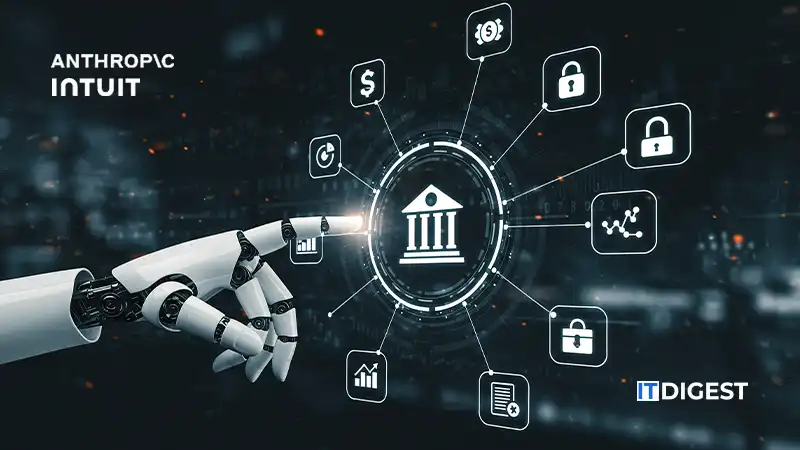Silicon Labs execs showcase AI’s role in shaping the future of wireless at first-ever embedded world North America keynote
Silicon Labs, a leader in secure, intelligent wireless technology for a more connected world, delivered the opening keynote for the inaugural embedded world North America, with CEO Matt Johnson and CTO Daniel Cooley discussing how AI is driving a revolution in IoT, while detailing the continued success of the company’s growing Series 2 platform and upcoming Series 3 platform.
“AI is rapidly becoming a key growth catalyst that will enable the number of IoT devices to reach over a 100 billion in the next decade,” said Silicon Labs President & CEO Matt Johnson. “Our upcoming Series 3 platform’s unparalleled capabilities and productivity will unlock new applications and new capabilities across a vast range of industries, from manufacturing and retail to transportation, healthcare, energy distribution, fitness, and agriculture, helping transform each sector in remarkable ways.”
To realize this vision, IoT devices need to bring powerful upgrades in connectivity, compute, security, and AI/ML capabilities. Silicon Labs today revealed more information on the Series 3 platform that will make that a reality.
Series 3 SoCs Will Feature World’s Most Nimble Modem, Most Secure and Scalable Memory
Series 3 devices will be able to answer the challenges that the continued acceleration of IoT poses: demands for more processing power at far-edge devices across all IoT applications in key areas including, but not limited to, smart cities and civil infrastructure, commercial buildings, retail and warehouses, smart factories and Industry 4.0, smart homes, connected health, and the demand for increasingly portable, secure, compute-intensive applications. They do this by addressing the key needs of the growing IoT:
- Connectivity: The full Series 3 portfolio will include dozens of products covering all major protocols and frequency bands, to connect just about anything. The first Series 3 device is designed to include the world’s most flexible IoT modem, capable of true concurrency on three wireless networks with micro-second channel switching.
- Compute: Series 3 devices will be multicore, with Arm Cortex-M application processors and dedicated co-processors for the radio and security subsystems as well as dedicated high performance machine learning subsystems for select devices. With the most scalable memory architecture in its class, combined with Cortex-M processors ranging from a Cortex-M33 at 133 MHz to dual Cortex-M55s running over 200 MHz, Series 3 devices enable complex applications and embedded real-time operating systems.
- Security: All Series 3 devices will support Silicon Labs Secure Vault High, with additional features like Authenticated Execute in Place to allow trusted communication between the device and the cloud. Series 3 will also have the world’s most secure memory interface, hardening one of the primary vectors of attack when intruders gain physical access and protecting the device maker’s IP. Series 3 will also incorporate the National Institute of Standards and Technology’s recently released post-Quantum encryption standards.
- Smart: Select Series 3 devices will feature Silicon Labs’ second-generation Matrix Vector Processor, which offloads complex ML operations off of the main CPU onto a specialized accelerator designed to increase ML performance by up to 100x in wireless, battery-powered devices, drastically reducing power draw.
A key driver in the design for this IoT revolution is data, which flows between edge devices to the cloud and back again. This two-directional flow makes IoT edge devices an ideal partner in the growing world of AI. Not only can the devices be used to make limited decisions at the edge, like smart thermostats that assess ambient temperatures and adjust a home’s HVAC, but also with the advent of massive cloud-based AI applications, edge devices can also play a critical role as data collectors and apply their ML abilities to filter the valuable data from the chaff better. The ability to identify and transmit the data for the “corner cases” that AI operators value to make their systems more intelligent.
The first Series 3 SoC is currently being sampled by customers, and more information will be revealed in the first half of 2025.
Also Read: Spirent Launches 5G Monetization with Real-World Testing
Series 1 and Series 2 SoCs Continue to Break the Air Gap
Silicon Labs Series 1 and Series 2 devices continue to be successful in helping to scale the IoT, provide secure, robust connectivity, and open up new applications. The Silicon Labs Series 2 platform grows today with the general availability of a family of new Wi-Fi 6 and Bluetooth LE ICs: the SiWG917 wireless MCU (SoC), the SiWN917 network-co-processor for hosted applications, and the SiWT917 radio co-processor IC targeted for applications running higher end operating systems. The SiWx917 family is designed from the ground-up for ultra-low-power Wi-Fi 6 applications, offering up to 2 years battery life on a single AAA battery in select IoT applications.
Earlier this year, Silicon Labs announced the BG26 and MG26 devices for Bluetooth and 802.15.4 connectivity. These wireless SoCs are built to be future proof as the needs of the IoT grow and feature the same Matrix Vector Processor for dedicated machine learning as the upcoming Series 3. The MG26 and BG26 doubled their predecessor’s Flash, RAM, and GPIO, and this innovation earned them one of IoT Evolution’s Product of the Year awards.
Silicon Labs Series 2 devices also serve an emerging area around Ambient IoT. This exciting new technology allows IoT devices to draw power from ambient sources in their environment, like indoor or outdoor ambient light, ambient radio waves, and kinetic motion. In partnership with PMIC manufacturer e-peas, Silicon Labs announced the xG22E, a new ultra-low power variant of the xG22 wireless SoC that has a substantially reduced power budget and advanced sleep/wake engines that allow it to operate within the ambient IoT power envelope. This broadly applies to sensors, switches, and commercial applications like electronic shelf labels.
There is still more to come for Series 2 in 2025 and Series 1, Series 2, and Series 3 will co-exist as strong offerings for vast amount of IoT applications.
Source: PRNewswire
































